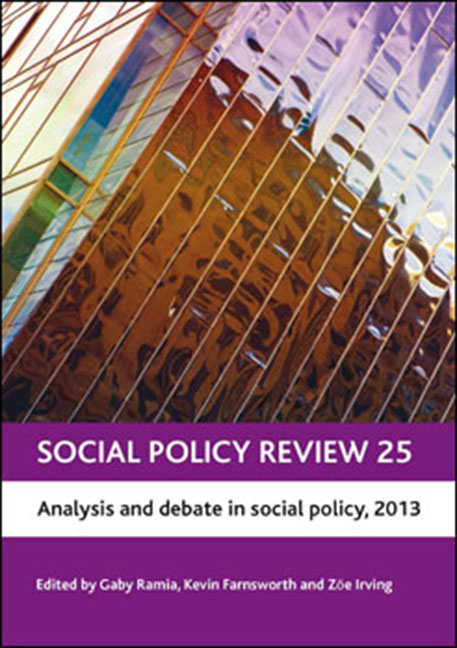Book contents
two - Reconciling fuel poverty and climate change policy under the Coalition government: Green Deal or no deal?
Published online by Cambridge University Press: 03 February 2022
Summary
Introduction
There are two dimensions to energy policy: climate change is commonly associated with the use of non-renewable forms of energy and subsequent greenhouse gas emissions, whereas fuel poverty is often associated with the underuse or excessive cost of household energy. In the UK, there are legally binding targets in place to both reduce fuel poverty and address climate change.
This chapter considers recent policy changes relevant to climate change mitigation and the alleviation of fuel poverty. The chapter aims to assess the extent to which policy developed under the Coalition government furthers and balances climate change and fuel poverty goals, reflecting on the Energy Act 2011 and its flagship policy, the ‘Green Deal’. This chapter is organised as follows. First, energy is discussed as a policy problem, and the need to address fuel poverty and climate change policy objectives simultaneously is outlined. Second, fuel poverty and climate change policy between 2001 and 2010 is outlined. Policy changes under the Coalition government are then described, and the differences between the two administrations’ approaches are highlighted, most notably, the shift away from public spending to financial provision through the private sector. Within this section, the broader policy context is also discussed, as many climate change policies have roots within EU-level legislation. Third, the likely impact of policy change is analysed, assessing whether fuel poverty and climate change policy aims are likely to be furthered. Fourth, the concluding discussion reflects on whether policy changes have effectively balanced fuel poverty and climate change objectives.
Energy as a policy problem
As described earlier, there are two elements to energy policy: fuel poverty and climate change. Discussions around fuel poverty originated in the 1970s, following global oil price shocks (Boardman, 1991). Energy-inefficient homes are considered to be the main cause of fuel poverty, in addition to fuel prices and low incomes (Boardman, 2012). Fuel poverty is currently defined as where a household ‘needs to spend more than 10 per cent of its income on all fuel use and to heat its home to an adequate standard of warmth’ (DTI, 2001, p 6), and it became a policy priority in the early 2000s.
- Type
- Chapter
- Information
- Social Policy Review 25Analysis and Debate in Social Policy, 2013, pp. 23 - 46Publisher: Bristol University PressPrint publication year: 2013



